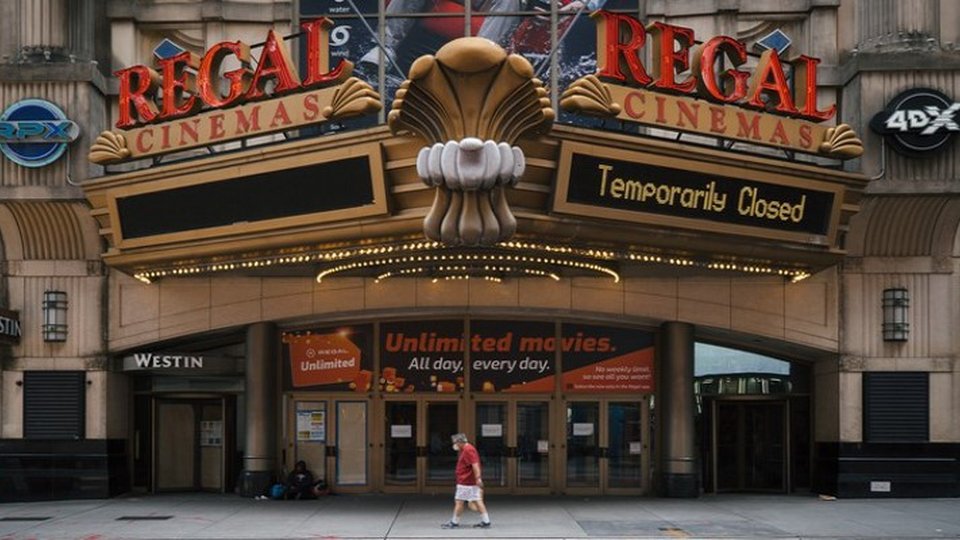Commentary
Can gamification revive cinema theaters? COVID-19 adds to the drama
As the cinema scene extracts itself from the pandemic and other issues, the need to offer a new and engaging entertainment offering could be their only lifeline, as concepts are eagerly being developed even during lockdown.

October 5, 2020 by Kevin Williams
The changing shape of the out-of-home entertainment landscape has been difficult to chart alongside the restructuring of the entertainment industry sector in general. It feels as if six years has been condensed into the same number of months — with changes that many of us felt would take generations, happening overnight. Be it the adoption of remote working, frictionless payment, audience registration systems or a new mindset towards what is achievable with a true entertainment model.
The gamification factor
The inclusion of gamification into all-new and existing entertainment models is an aspect that seems to have been accelerated by the global pandemic. Topgolf Entertainment announced a partnership with Rovio Entertainment that would see the creation of a first-of-its-kind interactive golf experience. This incorporates the Angry Birds license into a golfing game, with players on the shooting range, and through their ball-tracking technology, blending the physical act of hitting a golf ball with the digital, physics-based game destruction and scoring through this mixed reality based experience.
The Topgolf franchised concept has been added to the hospitality and driving ranges venue. The first sites to operate this new interactive element will be going on stream in the fall.
The pandemic factor
While new investment in additions to the existing Topgolf facility operation is under way, the impacts of the global health crisis have hurt previously established agreements for the operation.
Canada-based Cineplex and Topgolf Entertainment in 2017 established an exclusive partnership to export the entertainment experience to Canada. At the time, the agreement was heralded as a major joint venture that would see the opening of multiple Topgolf venues across the country. Information soon went cold regarding the rollout of these sports entertainment venues in the territory and, following the impact on business that has hit Cineplex through its cinema and shuttered entertainment facility business (reporting a loss of $98 million in its second quarter), it was revealed in August that Cineplex had decided to mutually call off the partnership.
Meanwhile, the entire "cinema" business future post-pandemic has been on the tongues of many. Be it the situation with AMC and their precarious finances, liquidity and involvement with Chinese investment, to the possible destruction of the very cinema business as a possible latest victim to Internet progression, the streaming sector looms to close the windowing of movie releases, spurred on by the impact of the shuttering of thousands of cinema venues under COVID-19 measures. Recently, each of these hanging swords saw another notch taken out of the hairs that holds them.
AMC will see 70% of its seats left empty as it opens over 100 venues in its 600-cinema chain in North America following over five months of lockdown. The company revealed that they would be undertaking COVID measures that included physical distancing of patrons.
Cinemark tested the water with 15 "test-and-learn" theater openings during July and announced the gradual reopening of some 525 venues, employing lessons learned from these tests. The plans include mandatory face mask wearing (unless with concessions), increased air circulation within the auditorium and screen rooms, pulled from outside, high-touch-point sanitization, wiping down seats and the vacuuming of public areas regularly, using HEPA filter units. All this is supported by contactless payment infrastructure.
The movie theater audience is not very dissimilar to the attractions theater audience, and many "movie attractions" have been looking to employ similar measures to those which will be seen from movie distributors. One such example is from cinema and attraction 4D effects seat and dome developer, MediaMation. The company revealed they have developed "SafeTSeat" — Plexiglass barriers (wings) that enforce physical distancing on their 4D seat systems, but which still allow access to cup-holders. This is not the first attractions developer to attempt to apply a physical barrier approach to separation under COVID-19 measures, and the company hopes to make this available to operators of 4D cinemas and attractions.
The next shoe to drop in this ongoing situation for the survival of the theater business was Walt Disney, announcing that they would be forgoing theatrical release for their blockbuster reinterpretation of their popular animated picture, with the live action "Mulan."
The ownership factor
When speaking of the corporations that run the theater business, we deal with the ticklish subject of ownership. Legislation in 1949 made it impossible for movie studios to own their own cinema distribution operations to address concerns of monopolies.
Jump forward to 2020 and, again under a post-pandemic Armageddon situation for cinema businesses, the possibility for the lessening of these controls has emerged. Federal courts ruled to allow studios to own theaters once again. Though the full implications of this move have yet to be determined, this is seen to be the ringing of the dinner bell regarding cinema acquisition and development that could see Disney, Amazon and even Universal own and operate their own theaters, and could also see a brand new approach to the presentation of movies in a post-COVID-19 world.
The possibility of a new landscape for cinema operation is being combined with a concept being considered to save the cinema sector that has been in experimentation long before the pandemic decimated operations. Under the term, "Cinema Entertainment Center," several venues comprising amusement, bowling and dining combined into a single site have been developed.
As reported by Box Office, the Cinergy Entertainment Group opened its first CEC in 2009, with the Texas operator redeveloping an existing multiplex site.
In Canada, Cineplex has been experimenting with two of its own approaches, "Xscape Entertainment Centre" and the newer "Junxion" concept.
Other examples include ShowBiz Cinema and its "Circus" concept, FatCats Entertainment and its CEC own secretive concept, or the "Luxury Entertainment Center" brand from B&B Theaters.
As the cinema scene extracts itself from the calamitous situation, the need to offer a new and engaging entertainment offering could be their only lifeline, and other secret concepts are eagerly being developed even during lockdown.
(Editor's note: Extracts from this blog are from recent coverage in The Stinger Report, published by KWP and its director, Kevin Williams, the leading interactive out-of-home entertainment news service covering the immersive frontier and beyond.)
About Kevin Williams
Along with advisory positions with other entrants into the market he is founder and publisher of the Stinger Report, “a-must-read” e-zine for those working or investing in the amusement, attractions and entertainment industry. He is a prolific writer and provides regular news columns for main trade publications. He also travels the globe as a keynote speaker, moderator and panelist at numerous industry conferences and events. Author of “The Out-of-Home Immersive Entertainment Frontier: Expanding Interactive Boundaries in Leisure Facilities,” the only book on this aspect of the market, with the second edition scheduled for a 2023 release.
 ChatGPT
ChatGPT Grok
Grok Perplexity
Perplexity Claude
Claude






